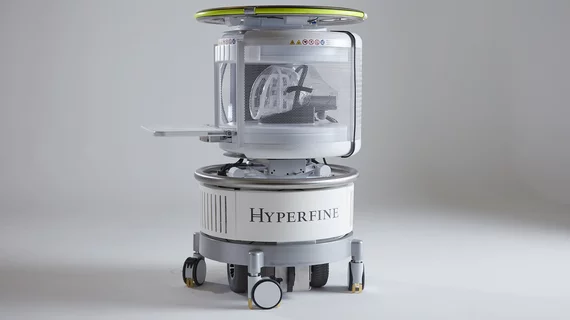Portable MRI creator Hyperfine launches $1.6M project to mitigate infant brain injury
Portable MRI specialist Hyperfine is launching a research program in low-resource countries investigating whether its bedside system can help diagnose infant brain damage, according to an announcement released on Thursday.
Supported by a $1.6 million grant from the Bill & Melinda Gates Foundation, Hyperfine hopes to mitigate labor- and delivery-related neurological damage resulting in hypoxic ischemic encephalopathy, the fifth leading cause of death worldwide in children under five.
“We are a mission in the form of a company—to make MR imaging accessible and affordable to everyone—and this research program is a perfect example of realizing that vision,” Khan Siddiqui, MD, Hyperfine’s chief medical officer, said in a statement. “We are so appreciative of the support from the foundation to help us improve the lives of mothers and children in underdeveloped countries by providing immediate and affordable access to the technology they need to improve patient outcomes.”
The Guilford, Connecticut-based company made waves in February after it scored U.S. Food and Drug Administration clearance for its movable modality, making it the ‘world’s first’ portable, low-cost MRI machine. Its Swoop system was also featured in a recent JAMA Neurology study which concluded the modality could reliably detect abnormal neurological findings in emergency care settings.
Over the next two years, Hyperfine will send 10 Swoop machines to research sites validating imaging protocols and data outcomes and another 10 directly to low-resource countries with limited MRI access and high rates of birth-related brain injuries. Modalities will begin shipping this year and should be delivered by next spring.
Jonathan Rothberg, PhD, founded the company in 2014 with a goal of revolutionizing how doctors think about MRI. Hyperfine says its machine costs $50,000, which is nearly 20 times cheaper than traditional systems. It runs on 35 times less power and utilizes low-field imaging technology.

